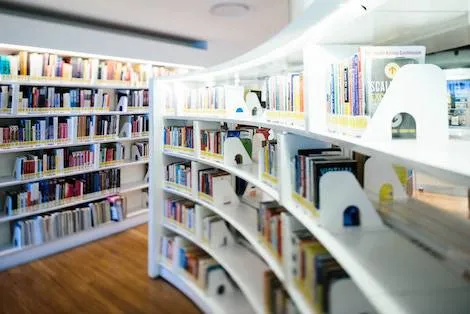
How to Support Your Library with These 10 Easy Actions
With brick and mortar bookstores seemingly closing left and right and folks attacking libraries for a perceived lack of relevance, you might be wondering how to support your library. The obvious option here for many is to donate old books and other materials. That’s a great way to help out if you’re sure you’re donating items the library can use (pro-tip: always call ahead and save yourself the trip; chances are we can’t use your VHS tapes!), but there are many more ways you can support your public library.

Get Political
When it comes to public libraries, local politicians can have a big hand in calling the shots in things like budgets. Often, we forget about things like library funding until it’s in jeopardy. Take a minute to write a letter to your local officers in support of your library. Be specific about how you and the rest of the community benefit—does your library offer an array of amazing programs? Does your library do a really excellent job of customer service? Does your library provide invaluable assistance with exam proctoring? Your mayor, council members, and what-have-yous might not be aware of this. They’re busy, so it’s useful for library customers to provide testimonials with reminders that the library is a community centerpiece.Letters to the Editor
Like writing to politicians, sending letters to the editors of local publications can be a huge help. While not everyone still receives or reads local publications, you never know who might take note of your sentiments. Maybe a stay at home dad in your neighborhood is looking for opportunities to socialize with other parents and, as a result of your letter, finds just the thing with story time. Maybe someone looking to write a will discovers the library has a will writing event coming up and they had forgotten about the library until now, but wouldn’t it be nice to leave something behind for it? Letters to the editor so frequently seem negative or anti-something or other—add some sunshine to your community with a letter of love for your library.Become a Friend of the Library
Friends of the Library groups are common across the United States. These fantastic volunteers do things like organize book sales, help out at library events, produce newsletters for the community, and other activities to support your library. They are a wonderful resource and typically easy to join. Some Friends of the Library groups have a membership fee (which usually goes toward the library or toward the function of the group) and it may be as simple as filling out a form online to join. Plus, being a Friend of the Library sometimes means perks, like early access shopping at the book sale!Shop at Your Library’s Book Sale
Whether your library has seasonal book sales, an ongoing book sale, or a combination of the two, there are often plenty of opportunities to buy cheap, secondhand books at the library. Depending on your library, there may also be local kitsch for sale along with the books, DVDs, and CDs (one of my local libraries had a print of an old map of town for sale last year—so cool!). These book sales are likely populated by donated materials which the library couldn’t use in their collection. You’re likely to find many bestsellers along with some obscure gems at a steep discount. Plus, the money raised goes to the library. Win-win!Check Out Materials
No kidding; it’s that simple. Libraries often thrive on statistics, so it’s important to use materials the library offers from print books to digital databases. Local politicians and others who have influence over the budget will look to the library’s usefulness in the community. Circulation statistics indicate how many books and other materials are checked out throughout the year. While it’s not always an accurate picture of the library’s impact, circulation statistics are frequently one of the main flags these folks look to. So before you run out to buy a book, take a peek at your library’s catalog to see if it’s available.










